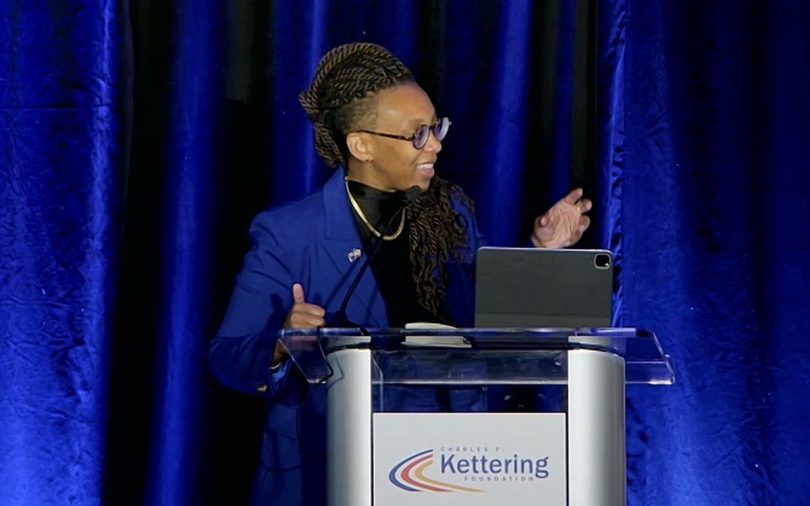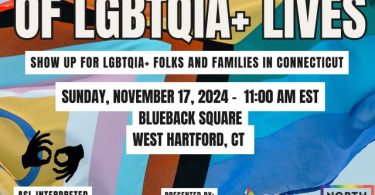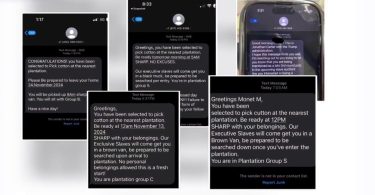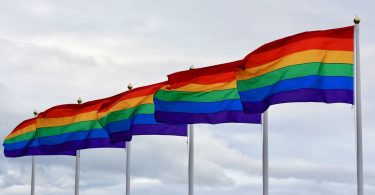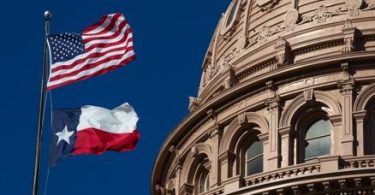WASHINGTON – Human Rights Campaign President Kelley Robinson addressed the rise in political violence and threats targeting LGBTQ and other marginalized communities during a speech on Tuesday at the Charles F. Kettering Foundation’s Kettering Conversations with Democracy Innovators conference in D.C.
“As we get to that point where freedom becomes more evident for more of us, the violence increases,” Robinson said. “The threats in front of us try to get us to cower and to shirk away and to go back in the closet and to hide — and this is one of those moments where we are again saying, ‘hell no.’”
The nonprofit leader reinforced the message that violence comes with, or perhaps follows, progress toward full equality, which provides reason for hope.
“You cannot tell me progress isn’t happening,” Robinson said, noting that she leads America’s largest LGBTQ group and is “talking to you about how we are going to protect and save our democracy” just two generations after her great aunt, who had “sat at the footsteps of people who were born into slavery.”
Likewise, she said, the lives of LGBTQ people are much better now than they once were.
“Forty years ago, you would be fired on the spot for being out at work. 40 years ago, if you contracted HIV or AIDS, that was a death sentence that took out a generation of gay men. Forty years ago, the idea of marrying the person that you loved, was a dream, let alone planning for it and have a reality television show that could follow you doing it.”
Robinson said that by contrast, today LGBTQ people are serving in some of the highest profile positions in the world, including White House Press Secretary Karine Jean-Pierre, outgoing Macy’s CEO Jeff Gennette, and Gabriel Attal, who became prime minister of France on Tuesday.
HRC last year issued a state of emergency for LGBTQ people in the U.S., an unprecedented move that came in response to the more than 600 anti-LGBTQ bills introduced across the country, Robinson noted.
The harm caused by these state legislators extends beyond the scope of their laws, whether or not they were passed, she said — harms that, for example, take the form of increased online bullying and harassment of LGBTQ kids along with bias motivated hate crimes.
“As I’ve been traveling the country, it’s been very clear to me that what’s happening isn’t just one state of emergency,” Robinson said. “It’s millions and millions of individual states of emergency that are playing out in our communities every single day.”
“We are living in a moment where a national web of right-wing organizations, grifters, talking heads and power-hungry politicians are working in coordination to hijack the levers of government and wield them as weapons against LGBTQ+ people,” she said.
Robinson then offered another reason to be hopeful amid the escalating violence targeting marginalized people and their allies: “our opposition,” she said, is “a small and dwindling minority”
In conclusion, Robinson outlined “two powerfully important things we can do together, starting today, that can make change.”
First, she said, “lean into the hard work and the hard conversations” because “democracy has always meant being at the table with people you disagree with” and it is therefore necessary to “humanize the fight for progress by being unapologetically visible.”
Second, “use your political power,” Robinson said. “Speak out boldly in the public. Use your relationships with influential business organizations, associations, and elected officials strategically.”

